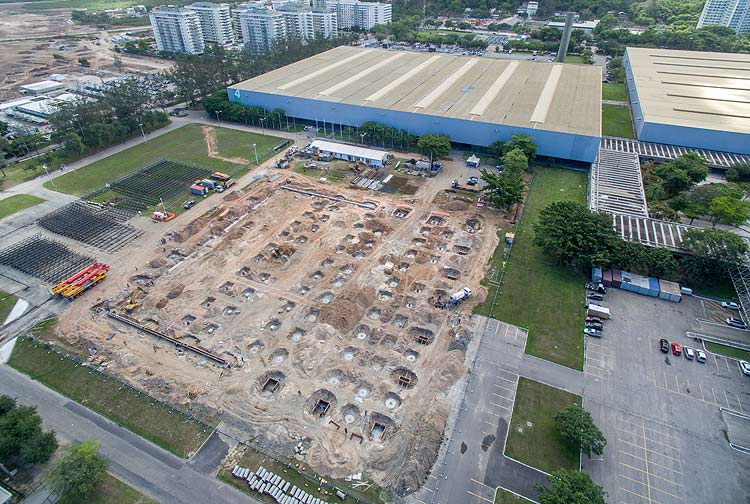Rio Fails to Meet its Olympic Environmental Goals
It is looking as if Rio will break several of the environmental promises made during the bidding stages to host the 2016 Olympic games. Many projects planned as part of a massive clean-up programme of the surrounding area have been suspended or abandoned midway.
The treatment process to remove sewage clogging up the Guanabara bay is still in its initial stages and will not near completion until way past the scheduled date. A desilting programme in the polluted Jacarepaguá lake is barely underway. Promises were made to plant seedlings in order to replenish the flora on Rio's Atlantic coast, but even this relatively simple undertaking has not been completed. The dream to open the Rodrigo de Freitas lake to tourists for swimming and bathing remains just that, a faraway fantastical dream.
| Felipe Hanower/Folhapress | ||
 |
||
| A bright future for Rio's ecosystem is being left to chance |
Various excuses have been given for this chronic inability to follow through on the promises laid out by the International Olympics Committee following Rio's bid to host the event. These include financial difficulties, managerial hiccups and troublesome new criteria. The 614-page document championed the rich legacy left by the games as one of the main reasons why Rio should make history as the first Latin American country to host the games.
Now, a bright future for Rio's ecosystem is being left to chance. Many fingers are being crossed and officials are standing by, hoping there will be no large scale environmental disasters, such as a giant fish kill in the lake that borders the Olympic park. In September last year roughly one tonne of dead fish was pulled out of the waters of the lake. At the time the Environment Secretary blamed strong winds that had been recently affecting the area. He said the gales had stirred up the organic material on the lake's bottom, layers of sewage built up over 40 years owing to inadequate sanitation in the Eastern zone of the city. This in turn released toxic gases, reducing the oxygen available for the fish still living in the region.
Since then nothing much has improved. The draining of the lake, budgeted at R$ 637 million (USD 191 million) was suspended after suspicions were raised as to the legitimacy of the endeavour's administration and an investigation was launched by the Public Ministry.
THE VIEW FROM THE OTHER SIDE
The State Environment Secretary is responsible for the clean-up initiatives in Guanabara bay and Jacarepaguá lake. He said that the goals had not been met because of a lack of planning as well as the adverse effects of the economic crisis. The state also claimed that at Jacarepaguá the Federal Public Ministry's stringent demands had pushed up the cost of the macrodrainage project, originally budgeted at USD 191 million.
"The Secretariat is making every effort to meet budgetary requirements, even during the crisis. Detailed plans for a stone and concrete breakwater at the mouth of the Joatinga canal have just been given the green light," he said. "This intervention will allow the water the flow in at a higher point, improving the water quality in the region."
Translated by GILLIAN SOPHIE HARRIS